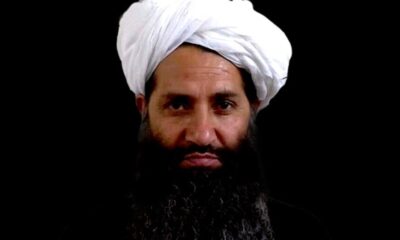Regional
Gulen, the powerful cleric accused of orchestrating a Turkish coup, dies
Herkul, a website which publishes Gulen’s sermons, said on its X account that Gulen had died on Sunday evening in the U.S. hospital where he was being treated.
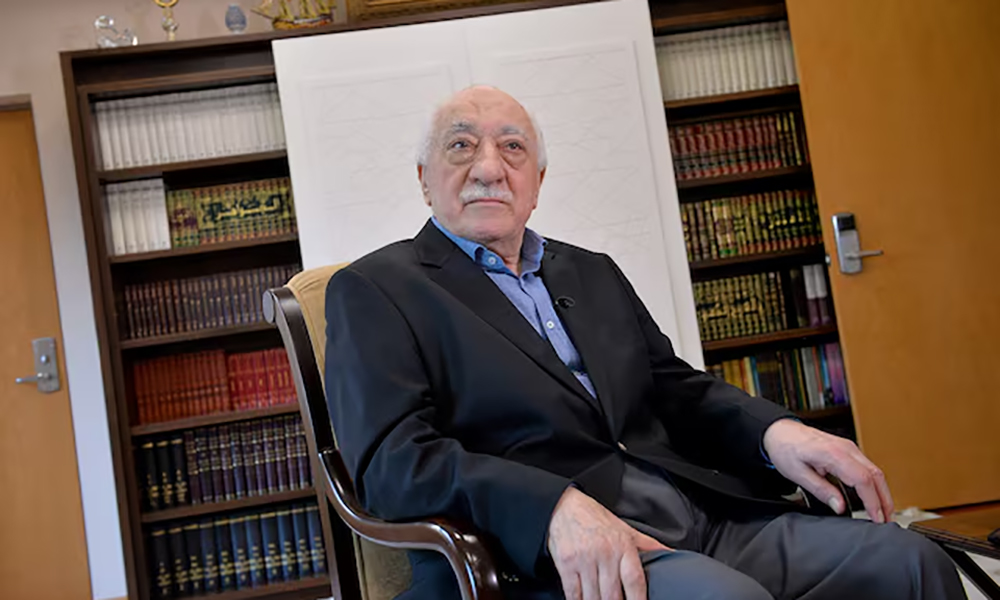
The U.S.-based cleric Fethullah Gulen, who built a powerful Islamic movement in Turkey and beyond but spent his later years mired in accusations of orchestrating an attempted coup against Turkish leader Tayyip Erdogan, has died. He was 83, Reuters reported.
Herkul, a website which publishes Gulen’s sermons, said on its X account that Gulen had died on Sunday evening in the U.S. hospital where he was being treated.
Gulen was a one-time ally of Erdogan but they fell out spectacularly, and Erdogan held him responsible for the 2016 attempted coup in which rogue soldiers commandeered warplanes, tanks and helicopters. Some 250 people were killed in the bid to seize power.
Gulen, who had lived in self-imposed exile in the United States since 1999, denied involvement in the putsch.
According to its followers, Gulen’s movement – known as “Hizmet” which means “service” in Turkish – seeks to spread a moderate brand of Islam that promotes Western-style education, free markets and interfaith communication.
Since the failed coup, his movement has been systematically dismantled in Turkey and its influence has declined internationally, read the report.
Known to his supporters as Hodjaefendi, or respected teacher, Gulen was born in a village in the eastern Turkish province of Erzurum in 1941. The son of an imam, or Islamic preacher, he studied the Koran from infancy.
In 1959, Gulen was appointed as a mosque imam in the northwestern city of Edirne and began to come to prominence as a preacher in the 1960s in the western province of Izmir, where he set up student dormitories and would go to tea houses to preach.
These student houses marked the start of an informal network which would spread over the following decades through education, business, media and state institutions, giving his supporters extensive influence.
This influence also spread beyond Turkey’s borders to the Turkic republics of Central Asia, the Balkans, Africa and the West through a network of schools.
Gulen had been a close ally of Erdogan and his AK Party, but growing tensions in their relationship exploded in December 2013 when corruption investigations targeting ministers and officials close to Erdogan came to light, Reuters reported.
Prosecutors and police from Gulen’s Hizmet movement were widely believed to be behind the investigations and an arrest warrant was issued for Gulen in 2014, with his movement designated as a terrorist group two years later.
Soon after the 2016 coup, Erdogan described Gulen’s network as traitors and “like a cancer”, vowing to root them out wherever they are. Hundreds of schools, companies, media outlets and associations linked to him were shut down and assets seized.
Gulen condemned the coup attempt “in the strongest terms”.
“As someone who suffered under multiple military coups during the past five decades, it is especially insulting to be accused of having any link to such an attempt,” he said in a statement.
In a crackdown after the failed putsch, which the government said targeted Gulen’s followers, at least 77,000 people were arrested and 150,000 state workers including teachers, judges and soldiers suspended under emergency rule, read the report.
Companies and media outlets regarded as linked to Gulen were seized by the state or closed down. The Turkish government said its actions were justified by the gravity of the threat posed to the state by the coup.
Gulen also became an isolated figure within Turkey, reviled by Erdogan’s supporters and shunned by the opposition which saw his network as having conspired over decades to undermine the secular foundations of the republic.
Ankara long sought to have him extradited from the United States.
Speaking in his gated compound in Pennsylvania’s Pocono Mountains, Gulen said in a 2017 Reuters interview he had no plans to flee the United States to avoid extradition. Even then, he appeared frail, walking with a shuffle and keeping his longtime doctor close at hand.
Gulen had travelled to the United States for medical treatment but remained there as he faced a criminal investigation in Turkey.
Regional
Iran ready for indirect talks with US, Khamenei aide says
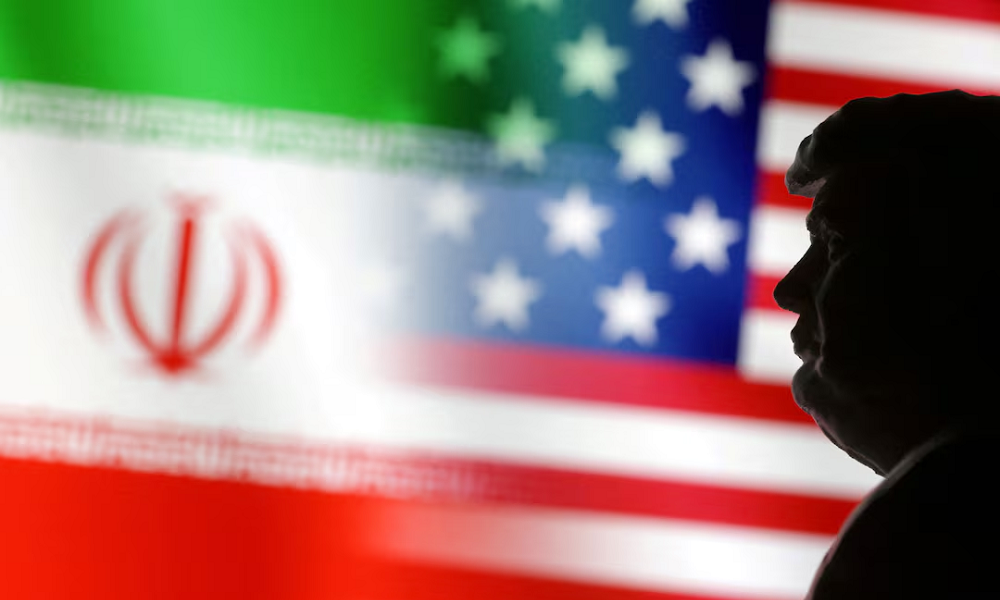
Kamal Kharrazi, an adviser to Iran’s supreme leader, said on Thursday Tehran has not closed all doors to resolve its disputes with the United States and is ready for indirect negotiations with Washington.
Tehran has so far rebuffed U.S. President Donald Trump’s warning it to make a deal or face military consequences. Supreme Leader Ayatollah Ali Khamenei called the message deceptive and Foreign Minister Abbas Araqchi said talks are impossible unless Washington changes its “maximum pressure” policy.
“The Islamic Republic has not closed all doors. It is ready for indirect negotiations with the United States in order to evaluate the other party, state its own conditions and make the appropriate decision,” Kharrazi said, according to the semi-official Iranian Students News Agency.
Iran is meant to soon reply to Trump’s letter, with Araqchi saying last week that Tehran would take into consideration both Trump’s threat and opportunities in its response.
In his first 2017-21 term, Trump withdrew the U.S. from a 2015 deal between Iran and world powers that placed strict limits on Tehran’s disputed nuclear activities in exchange for sanctions relief.
After Trump pulled out in 2018 and reimposed sweeping U.S. sanctions, the Islamic Republic breached and has since far surpassed those limits in its escalating programme of uranium enrichment.
Western powers accuse Iran of having an clandestine agenda to develop nuclear weapons capability by enriching uranium to a high level of fissile purity, above what they say is justifiable for a civilian atomic energy programme.
(Reuters)
Regional
Pakistan, China in talks about security for Chinese nationals
Chinese nationals have been targeted by separatist militants who believe Beijing is helping Pakistan exploit minerals in Balochistan
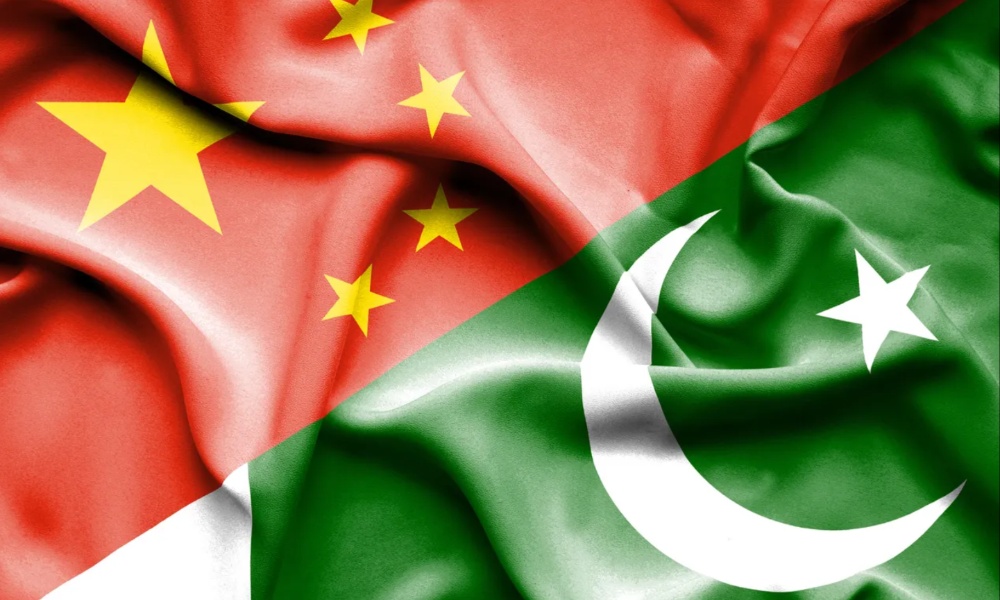
Pakistan and China’s discussions about security measures to protect Chinese nationals working in the South Asian country are a work in progress, Islamabad’s ambassador to Beijing said on Wednesday.
Chinese nationals have been in the crosshairs of separatist militants who believe Beijing is helping Pakistan exploit minerals in the underdeveloped southwestern province of Balochistan, where China has a strategic port and mining interests, Reuters reported.
It is Pakistan’s “national responsibility” and the country is “doing everything possible”, Ambassador Khalil Hashmi told reporters at the sidelines of the Boao Forum in China’s Hainan province.
“I think our two countries work very closely in terms of information sharing, in terms of developing the standard operating procedures” to ensure Chinese nationals working in Pakistan are safe, he said.
“We keep our Chinese friends informed of the steps that we are taking, so it’s a work in progress.”
Beijing has been pushing Pakistan to allow its own security staff to provide protection to thousands of Chinese citizens working there, frustrated by the string of attacks on its citizens.
The push came after a bombing at the Karachi airport last October killed two Chinese engineers who were returning there to work at a power plant.
Hashmi said those talks are ongoing, with a high degree of trust between both countries.
“It’s a complex security environment,” he said, “We have the capability to resolve, to counter and combat and defeat these terrorist forces.”
Regional
Egypt makes new proposal to restore Gaza truce as Israeli strikes kill 65
Palestinian officials on Sunday put the number of dead from nearly 18 months of conflict at over 50,000, read the report.

Egypt has floated a new proposal aimed at restoring the Gaza ceasefire deal, security sources told Reuters on Monday, as Palestinian health authorities said Israeli strikes had killed at least 65 people in the enclave in the previous 24 hours, Reuters reported.
The proposal, made last week, follows an escalation in violence after Israel resumed air and ground operations against Hamas militants on March 18, ending a two-month period of relative calm after 15 months of war.
Gaza health officials said Israeli airstrikes and shelling have killed nearly 700 Palestinians since then, including at least 400 women and children.
Among those killed on Monday were two local journalists, Mohammad Mansour and Hussam Shabat, medics said. The Palestinian Journalist Syndicate said at least 206 journalists have been killed by Israeli fire in Gaza since early October 2023, when the conflict erupted. There was no immediate Israeli comment.
Islamist group Hamas said several of its senior political and security officials had also been killed, read the report.
Later on Monday, the Israeli military said it had intercepted a missile launched from Yemen before it crossed into Israel. Warning sirens had sounded in Jerusalem, Tel Aviv and other areas. Iran-aligned Houthi forces in Yemen have at times fired missiles at Israel in support of Hamas fighters.
The Egyptian plan calls for Hamas to release five Israeli hostages each week, with Israel implementing the second phase of the ceasefire after the first week, two security sources said.
Hamas is still holding 59 hostages, with 24 thought to be still alive, among the more than 250 it seized in its October 7, 2023 cross-border attack on Israel. Most of the rest have been freed, or their bodies handed over, in negotiated exchanges.
Both the U.S. and Hamas have agreed to the proposal, the security sources said, but Israel has not yet responded, Reuters reported.
A Hamas official did not confirm the proposed offer, but told Reuters that “several proposals are being discussed with the mediators to bridge the gap and to resume negotiations to reach common ground that would pave the way to start the second phase of the agreement”.
The sources said the Egyptian proposal includes a timeline for a full Israeli military withdrawal from Gaza, backed by U.S. guarantees, in exchange for the release of remaining hostages.
Hamas has accused Israel of breaking the terms of the January ceasefire agreement but has said it is willing to negotiate a renewed truce and was studying proposals from U.S. President Donald Trump’s special envoy, Steve Witkoff.
Israel says it resumed its military operations to force Hamas to release the remaining hostages it is holding in Gaza.
On Monday, Hamas released a video it said showed hostages Elkana Bohbot, 35, and Yosef Haim-Ohana, 24, who were both abducted from the Nova music festival site on October 7.
Israel says it does its best to reduce harm to civilians and has questioned the death toll provided by health authorities in the Hamas-run enclave.
Palestinian officials on Sunday put the number of dead from nearly 18 months of conflict at over 50,000, read the report.
Israel launched its offensive in Gaza after Hamas fighters stormed southern Israel on October 7, 2023, killing 1,200 people, mostly civilians, according to Israeli tallies.
In Gaza’s southernmost city Rafah, the municipality said thousands of people were stuck inside the Tel Al-Sultan district where some Israeli military forces had entered, with families trapped among the ruins, with no water, food, or medicine.
The Palestinian Civil Emergency Service said 50,000 residents remained cornered in Rafah, which abuts the border with Egypt.
The Israeli military said troops had encircled Tel Al-Sultan to dismantle “terror infrastructure sites and eliminate terrorists in the area”.
A United Nations spokesperson said on Monday it would reduce its footprint in Gaza after five staff members of its Palestinian relief agency UNRWA were killed in the renewed conflict, but remains committed to providing aid to civilians.
Separately, UNRWA said 124,000 Palestinians have been displaced in Gaza in recent days.
“Families carry what little they have with no shelter, no safety, and nowhere left to go. The Israeli authorities have cut off all aid. Food is scarce and prices are soaring. This is a humanitarian catastrophe. The siege must end,” UNRWA said on X.
-

 International Sports4 days ago
International Sports4 days agoRCB bring fireworks to opening night of IPL 2025
-
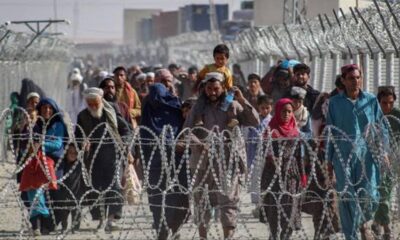
 Latest News4 days ago
Latest News4 days agoTorkham border reopens for pedestrians
-
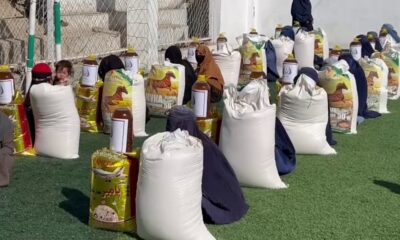
 Latest News4 days ago
Latest News4 days agoBayat Foundation distributes food aid to dozens of needy families in Balkh
-

 International Sports3 days ago
International Sports3 days agoIPL 2025: Sunrisers on a batting rampage; triumph over Rajasthan Royals
-

 Latest News3 days ago
Latest News3 days agoEU says girls’ education crucial for Afghanistan’s long-term prosperity
-
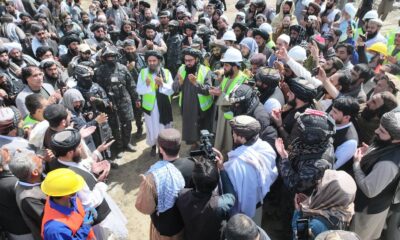
 Business4 days ago
Business4 days agoDeputy PM inaugurates launch of Arghandi Transport Terminal Project in Kabul Province
-

 Sport3 days ago
Sport3 days agoACB names Afghanistan A squad for tri-nation series
-
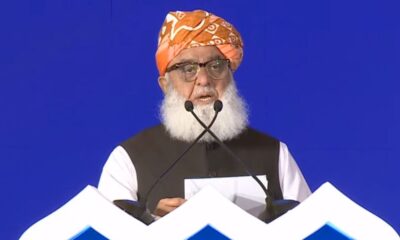
 Latest News4 days ago
Latest News4 days agoPakistan’s mistakes played significant role in rise of terrorism: Maulana Fazl-ur-Rehman










